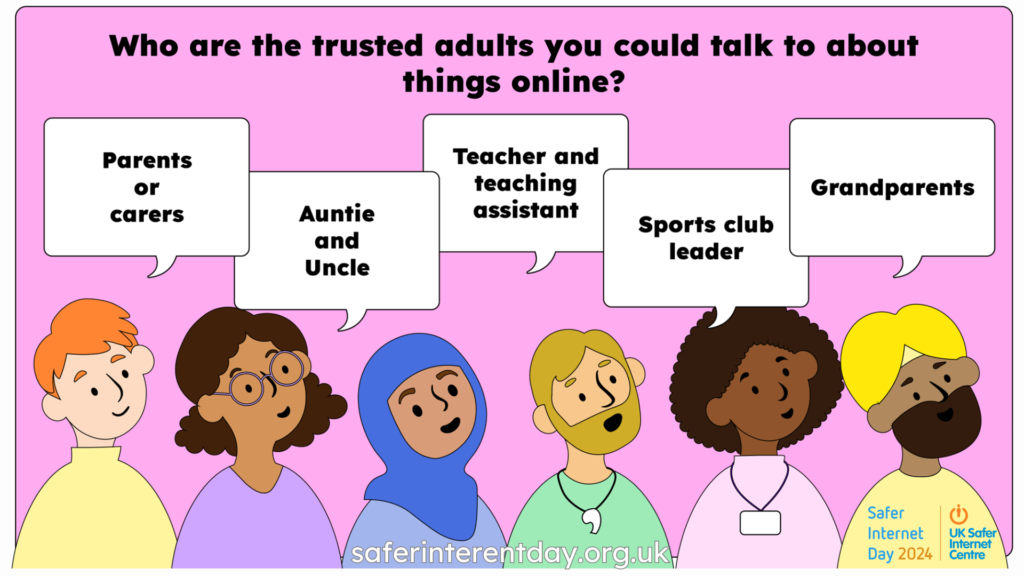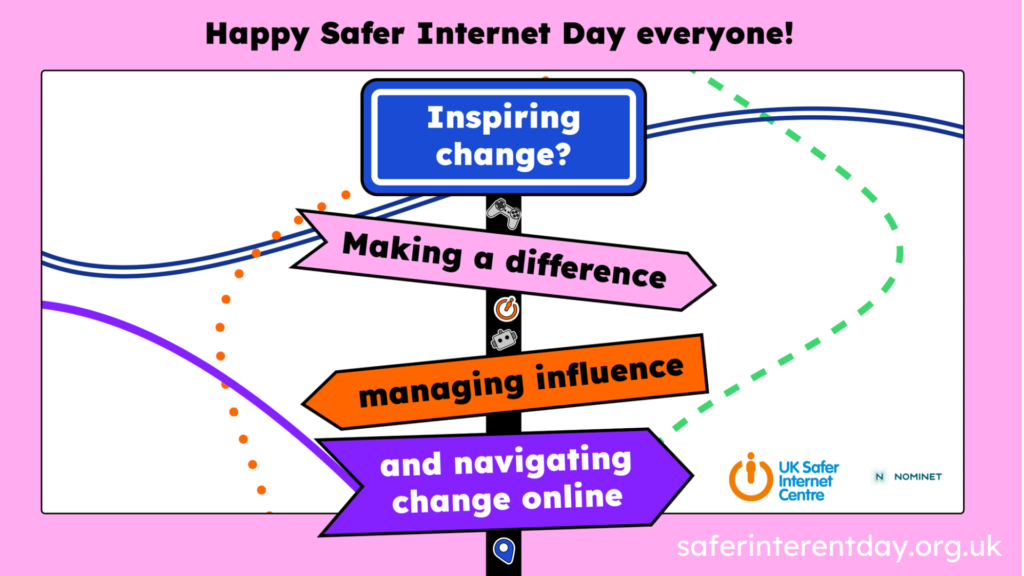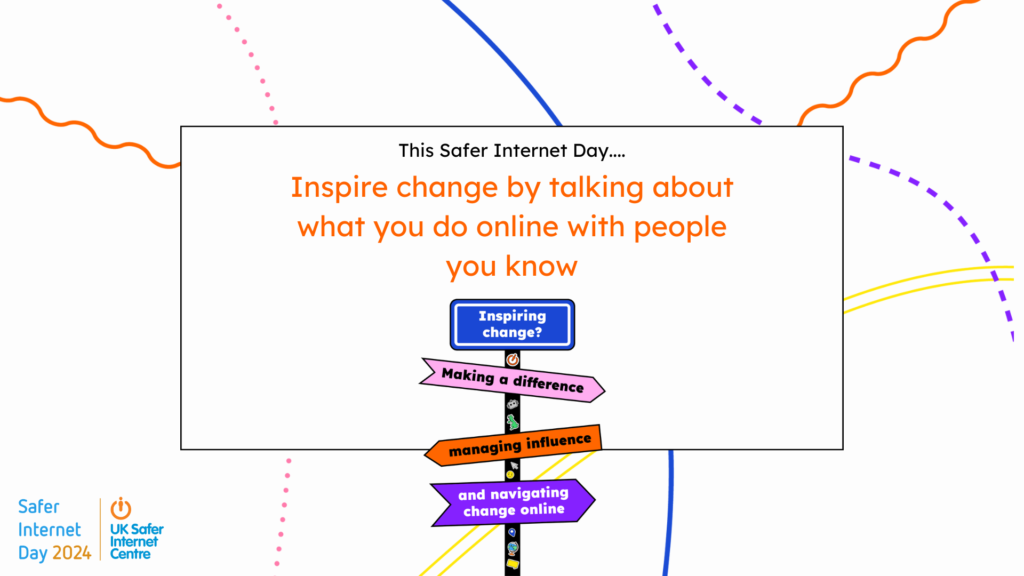Online safety
Online safety newsletter – September edition
This is the September edition of our online safety newsletter. If you need any support with any aspect of online safety, or if you have any concerns, please do not hesitate to get in touch with the school.
Online Safety Newsletter September 2024 (1)To view as a PDF and access the links, please click here.
Online safety newsletter – July edition
To view as a PDF and access the links, please click here.
Online safety newsletter – May edition
This is the May edition of our online safety newsletter. If you need any support with any aspect of online safety, or if you have any concerns, please do not hesitate to get in touch with the school.
To view as a PDF and access the links, please click here.




Dear Parents and Carers,
Safer Internet Day 2024
On Tuesday 6th February we will be joining schools and youth organisations across the UK in celebrating Safer Internet Day 2024. Safer Internet Day is a global campaign to promote the safe and responsible use of technology, which calls on young people, parents, carers, teachers, social workers, law enforcement, companies, policymakers and more, to help to create a better internet.
This year the campaign will be focusing on change online, this includes covering:
- Young people’s perspective on new and emerging technology
- Using the internet to make change for the better
- The changes young people want to see online
- The things that can influence and change the way young people think, feel and act online and offline
Using the internet safely and positively is a key message that we promote in school, and celebrating Safer Internet Day is a great opportunity for us to re-emphasise the online safety messages we deliver throughout the year.
We would be delighted if you could join us in celebrating the day by continuing the conversation at home. To help you with this, the UK Safer Internet Centre have created some free activities and information for parents and carers which are available at:
saferinternet.org.uk – please click here.
Whether you have 5 minutes to start a conversation or hours to spare, there are top tips, quizzes and films which you can use at home with your child.
Quiz – https://saferinternet.org.uk/safer-internet-day/safer-internet-day-2024/quiz-for-14-18-year-olds
Video –
If you have any concerns or questions about keeping your child safe online, please email [email protected] and a member of staff will contact you.
Kind regards,
Mrs McDonagh
Course Leader for IT and Computer Science
Mr Bellmon
Deputy Head Teacher and Head of Safeguarding
St Hilda’s School is committed in assisting parents and carers to cope with e-safety, in line with guidance from School Improvement Liverpool.
Please click here for attached a guide to some of the many apps that are massively used by young people and children that you may find useful if you are a parent. It details the age restrictions for the app and a brief description of what it can be used for. Obviously it is only the tip of the iceberg but it may well start the ball rolling.
There are a few apps that aren’t on there that are also a worry if you are the parent of a primary school aged pupil such as MovieStarPlanet and Music.aly that are extremely popular as they children can make their own videos/sing along with songs and be recorded but they are well known for being used by predators.
Useful checklists for keeping young people safe online

CEOP is a command of the National Crime Agency.
To visit the CEOP website, please click here.
UK Safer Internet Centre
At the UK Safer Internet Centre, you can find online safety tips, advice and resources to help children and young people stay safe online.
The UK Safer Internet Centre is a partnership of three leading organisations: Childnet International, Internet Watch Foundation and SWGfL, with one mission – to promote the safe and responsible use of technology for young people.
To visit the UK Safer Internet Centre website, please click here.
internet matters.org – supporting families online
Helping parents keep their children safe online. Get expert support and practical tips to help children benefit from connected technology and the internet safely and smartly.
For more information, please click here.
London Grid for Learning (LGfL) – online safety and safeguarding
Net Aware
Your guide to social networks, apps and games.
Right now, kids will be spending more time online, so we’ve got advice to help you keep your kids safe during lockdown and beyond.
For more information, please click here.
parentINFO – help and advice for families in a digital world
Parent Info is a collaboration between Parent Zone and NCA-CEOP, providing support and guidance for parents from leading experts and organisations.
For more information, please click here.
THINK U KNOW.co.uk
Thinkuknow is the education programme from NCA-CEOP, a UK organisation which protects children both online and offline.
Explore one of the six Thinkuknow websites for advice about staying safe when you’re on a phone, tablet or computer.
For more information, please click here.
NSPCC – Online Safety
It can be hard to know how to talk to your child about online safety. From setting up parental controls to advice on sexting, online games and video apps, we can help you to understand the risks and keep your child safe. For more information, please click here.
